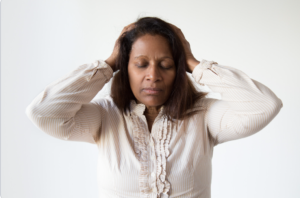Blog
By Colleen Daugherty, MA, MS, LMHCA

Walking Through the Fire: How Therapy Supports Healing During Divorce
Divorce is more than a legal ending—it’s often one of the most disorienting and emotionally complex transitions a person can experience. It’s not just the loss of a relationship; it’s the unraveling of a shared life, the collapse of long-held dreams, and the overwhelming task of rebuilding a future you never planned for.
As a trauma therapist, I’ve walked alongside many clients through this kind of pain. But I’ve also known it personally. A few years ago, my own world changed in an instant. I came across something that made it undeniably clear my marriage was over. In that moment, everything I had been trying to hold together fell apart.

Demystifying Play Therapy: A Guide to Helping Your Child Thrive
Play is a child’s natural language, a way they explore the world, express their feelings, and make sense of their experiences. But did you know that play can also be a powerful tool for healing? That’s where play therapy comes in — a therapeutic approach that uses the power of play to help children navigate emotional and behavioral challenges, develop coping skills, and reach their goals. But what exactly is play therapy? How does it work? And how can it benefit your child? Let’s break it down and demystify play therapy, so you can help your child thrive in “Demystifying Play Therapy: A Guide to Helping Your Child Thrive.”

Understanding Postpartum OCD
Becoming a mother is often described as one of the most profound and life-changing experiences a woman can have. It’s a time filled with joy, excitement, and anticipation. However, for some women, the postpartum period can also be a time of unexpected emotional and psychological challenges. While postpartum depression (PPD) is widely recognized and discussed, another condition that affects new mothers but is less commonly understood is Postpartum Obsessive-Compulsive Disorder (OCD). Postpartum OCD is a form of obsessive-compulsive disorder that emerges after the birth of a child. It is characterized by intrusive, unwanted thoughts (obsessions) and repetitive behaviors (compulsions) that are performed in an attempt to alleviate the distress caused by these thoughts. Understanding the signs, causes, and treatment options for Postpartum OCD is crucial for new mothers and their families to ensure a comfortable and enjoyable postpartum experience.
 Aversion to sound, often known as hyperacusis or misophonia, is a condition where everyday sounds can become unbearable. For those who suffer from this sound aversion, simple noises like chewing, typing, or even breathing can trigger intense discomfort or emotional reactions. Better understanding this condition can assist in finding ways to manage it to help improve quality of life. Let’s take a deeper look into understanding and managing aversion to sound in this blog:
Aversion to sound, often known as hyperacusis or misophonia, is a condition where everyday sounds can become unbearable. For those who suffer from this sound aversion, simple noises like chewing, typing, or even breathing can trigger intense discomfort or emotional reactions. Better understanding this condition can assist in finding ways to manage it to help improve quality of life. Let’s take a deeper look into understanding and managing aversion to sound in this blog:

Debunking Sex Therapy Myths
Sex therapy is often misunderstood, surrounded by myths and misconceptions that can deter people from seeking help. Whether you’re experiencing sexual issues or simply looking to enhance your intimacy and relationship satisfaction, understanding the truths about sex therapy can be enlightening and empowering. Here, we will be debunking sex therapy myths and highlight the importance of choosing a certified professional.

Emotional abuse, especially from narcissistic individuals, can leave deep scars that impact self-esteem, trust, and overall mental health. Recognizing the signs of this abuse and understanding how to navigate the healing journey are essential steps toward reclaiming your life and well-being. Let’s take a deep dive into navigating healing from narcissistic and emotional abuse:
by Lauren Harding, Eating Recovery Coach and Counseling Intern
The holiday season can bring a significant amount of joy; however, it also presents its fair share of challenges. There is an expectation that the next few months are the best time of the year, which can be especially daunting for those who struggle with mental health issues.
For individuals who struggle with eating disorders or disordered eating, the holidays pose unique difficulties. Between the strong emphasis on food, diet talk, and that uncle who comments on your weight each year, the holiday season may be something that you are dreading. The “busy-ness” of this time of year, lack of routine, social experiences, and painful memories can further exacerbate disordered eating, anxiety, or depressive symptoms.
By Kate Fisch, LCSW
Because we stereotype individuals suffering with an eating disorder as teenage girls, adolescent boys with eating disorders often go overlooked. This is further exacerbated by the fact that eating disorder commonly manifest differently in boys than they do in girls. Typically, eating disordered girls describe an obsession with being thin and an irrational fear of gaining weight. Indeed, eating disordered boys can also have similar focus but often their eating disordered goals are to increase muscle and achieve a more “chiseled” physique. This is sometimes referred to as “reverse anorexia” or “bigorexia.” A physical “façade” reinforced by our sociocultural messages of masculinity.
By Lauren Harding, Eating Recovery Coach
Often in eating disorder treatment, the eating disorder is interpreted as some outside entity, external from the individual struggling with an eating disorder. I view the eating disorder self a little bit differently. An old Cherokee Indian legend illustrates the most important battle of our lives between the good wolf and bad wolf inside of us. The wolf that ultimately wins is the one that we choose to feed. YOU are the one who has the power to either strengthen the eating disorder self or to defeat the eating disorder self, because the eating disorder is a part of YOU. You were born with a healthy core self that has been taken over by the eating disorder self over time. Clients typically describe the eating disorder self as a “monster that takes over” or the “demon inside of them”, I refer to the eating disorder self as ED- the abusive partner. The abusive partner, although toxic provides, a sense of stability for you. It promises a better future if you listen to it. It lures you in but continues to hurt you, while telling you that it will get better if you just stay. The longer you stay with an abusive partner, the stronger the abusive partner becomes. And ultimately, it is you that has the power to say goodbye to that abusive partner inside of you.
By Lauren Harding, Recovery Coach
Disordered eating is NOT “less serious” than an eating disorder. And BOTH are deserving of support and treatment. Eating disorders are a pattern of behavioral, physical and psychological signs and symptoms that fit into the specific criteria outlined by the DSM. Disordered eating is a pattern of behavioral, physical and psychological signs and symptoms that do not clearly fit into a diagnosis outlined in the DSM. Disordered eating may be harder to detect due to a society that is obsessed with the pursuit of “wellness” and that celebrates disordered eating behaviors.
Recent News
-
May 27, 2025
-
October 1, 2024
-
September 8, 2024
-
August 9, 2024